
Back to the future with violinist Satu Vänskä
If a Venn diagram existed, showing the past centuries of the Western classical tradition on one side and the as yet uncharted future of classical music on the other, the artistic vision of violinist Satu Vänskä would sit neatly at the epicentre where these two perspectives intersect.
Today, Satu Vänskä is best known as the Principal Violinist of the Australian Chamber Orchestra, also regularly leading the group’s chamber ensemble, the ACO Soloists. But her interests as a artist hopscotch the boundaries of musical and artistic genres, revealing a dexterous savvy for crossover collaborations, most notably as the frontwoman of the ACO’s experimental “spin-off band,” ACO Underground.
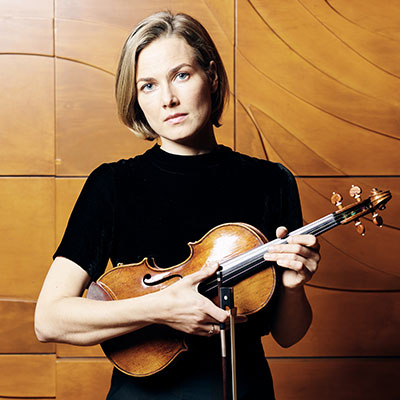
But looking back at her early life, clues as to the origins of this uniquely idiosyncratic artistry are subtle. Her training as a musician was fairly typical, beginning her violin studies aged three, although her upbringing – born in Japan to Finnish parents, returning to her family’s native Finland when she was ten years old – may well have planted the seeds of the multi-cultural passions so visible in her work today. At a glance, her early musical life is also relatively textbook, punctuated by the award-wins and prestigious schooling many professional musicians boast. Indeed, the career path she followed immediately after graduating from the Hochschule fur Musik in Munich was also a common one, entering the ranks of the Munich Philharmonic and Bavarian Radio Symphony Orchestra. And this might well have been the summation of her life as a professional musician, as it has for many fine orchestral players around the world.
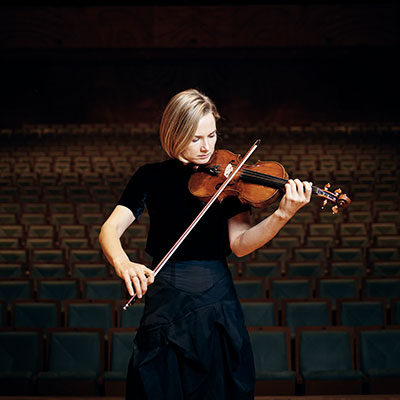
However, Vänskä’s passion for the traditions of her craft are matched by an equally driven desire to explore its new frontiers. It’s this liminal fascination – at once a world-class exponent of the classical repertoire and a fiercely innovative music-maker of the contemporary avant garde – that has come to define her stature as one of Australia’s most thrilling and unique talents.
Ahead of her upcoming recital as part of the Melbourne Recital Centre’s Great Performers series, Satu Vänskä (SV) speaks to Maxim Boon (MB) about bringing classical music’s past and future into the present.
MB: Perhaps the most direct connection your artistry makes to the past is the instrument you play on – one of the most coveted in the world by legendary luthier Antonio Stradivari, which was acquired by the ACO’s Chairman Guido Belgiorno-Nettis in early 2018. The relationship between a musician and their instrument is a deeply intimate one. Tell me about the first time you had the chance to play this incredible violin that has become such an important part of your life.
SV: It's always sort of like meeting a person, you know? Some extraordinary, impressive person. It’s a Stradivarius, so of course I knew it would be a very fine instrument. But this particular instrument immediately struck a chord with me and, of course, with Richard [Tognetti – director of the ACO and Vänskä’s husband] straight away. It's a great player's instrument, if that makes sense. It's from the late period, made in 1726. And it has this bright and bold quality, but for a Stradivarius instrument it's got a very, sort of, unique character all of its own. It has all sorts of layers; there's rich, dark tones, especially in the lower register. But the first time that I held it, I was in New York at the Carnegie Hall where there were two other violins that were being considered for the ACO, and it was really a ‘Wow’ kind of moment to play it for the first time. Of course, by no means would I stop playing the violin if this beautiful Stradivarius was taken away from me. I would be still playing the violin – it's not like your skills suddenly disappear without this magic box in your hand. But at the same time, I would also argue that this violin encourages me to become a better player, because it’s actually more demanding to play, as it has more character and more possibilities than most instruments.
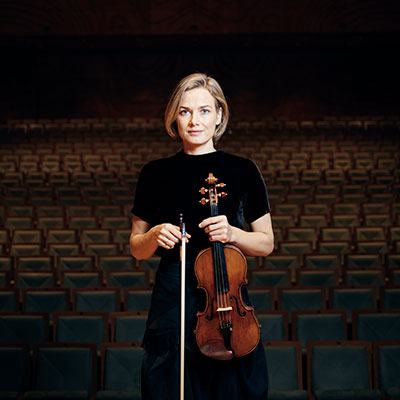
MB: Your identity as a musician also seems full of possibilities, particularly in the range of collaborations and different kinds of performance you’re known for, from very traditional classical concerts to highly experimental work. Was it always an ambition to develop this level of diversity as an artist, or did it emerge organically?
SV: No, I never consciously wanted to somehow be different, so I think it's really come about organically, but also from necessity. I always wanted to work, to perform. And if you want to do that with any regularity it’s silly to be really restrictive or selective about what you do. So in that sense, it came about in a very organic way for me. But having said that, when I was younger and I had jobs in orchestras in Germany, I thought, 'This is really dusty.’ It didn't feel natural for someone in their early 20s to be part of this world. I just thought, 'This is not natural, I should be making music with people I share some identity with. Why should I be pretending to be some old, white, German man in an orchestra in order to fit in?' And that has nothing to do with the music – but everything to do with the culture that surrounds that music, because it feels scared of change. And if you think about it, there's never been so much classical music going on in the world than at any other time in history. Right now, concert halls are full all over the world. So it's not like it's somehow disappearing – I don't see that, at least. The ACO just played in London, part of our residency at the Milton Court Hall, and we played Mozart’s Last Symphony, and you couldn’t get a ticket! It was sold out.
MB: Do you think it’s a duty of musicians such as yourself to try and challenge some of those misconceptions surrounding classical music, particularly the impression that it’s an art form in decline?
SV: Of course – because for a start it’s just not true! You can actually do very highbrow works and be rigorous to a true musical pedigree without being boring or redundant. People are not stupid. People feel it when you're doing something well or sincerely. Of course, there is that sort of attention span thing that is going on in today's world, but then on the other hand, look at those meditation poses and yoga classes – people are really into that kind of stuff too. So I think that sort of calm, the stillness of the concert hall, as frightening or dull as it might seem to a very hyper-stimulated world, there's actually more of need for it now more than ever. The concert hall can be refuge.
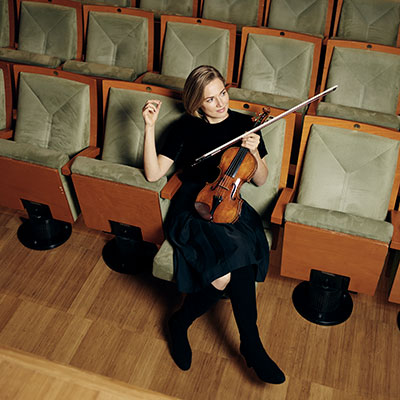
MB: If you look back through the history of classical music – even the very recent past – violinists have often been the instigators of change – the likes of Yehudi Menuhin, Jascha Heifetz, Fritz Kreisler, Paganini come to mind, and of course Nigel Kennedy and your husband, Richard Tognetti. Do you think there’s something innate in the personality type of a violin soloist that makes them more inclined to be pioneers and trailblazers?
SV: That’s a really good question! Perhaps more than, say, pianists, who can be very analytic, or composers, who can often go into their own composing world. But it’s a very interesting question. Violins also have been used as fiddlers, of course. So, in the history of violin playing, it's always been a kind of talking instrument, an instrument that has brought people together. It's been a gypsy instrument all around the world, wherever you go, from Irish, to Scottish, to the Russian and Finnish folk music, and the Jewish-klezmer music. So it might be that connection – even subliminally – that make violinists attracted to breaking the boundaries, if you want to call it that
Satu Vänskä opens Melbourne Recital Centre's 2019 Great Performers series on 20 February with pianist Kristian Chong and a program featuring Lutosławski, Bach, Beethoven, Saariaho and Ravel.
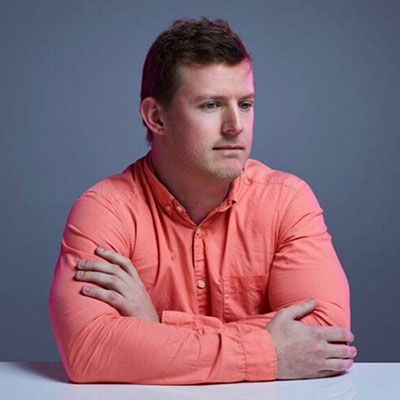
About the Author / Interviewer: Maxim Boon
Maxim Boon is a British writer, critic and composer based in Melbourne. He is the Senior Editor of The Music, the former Online Editor of Limelight Magazine, and a regular contributor to The Age, The Guardian, Time Out, Daily Review and Arts Hub.
Visit Maxim's website here
Follow Maxim on Twitter here
You might also be interested in
-
-
-
Explore the program notes in advance

